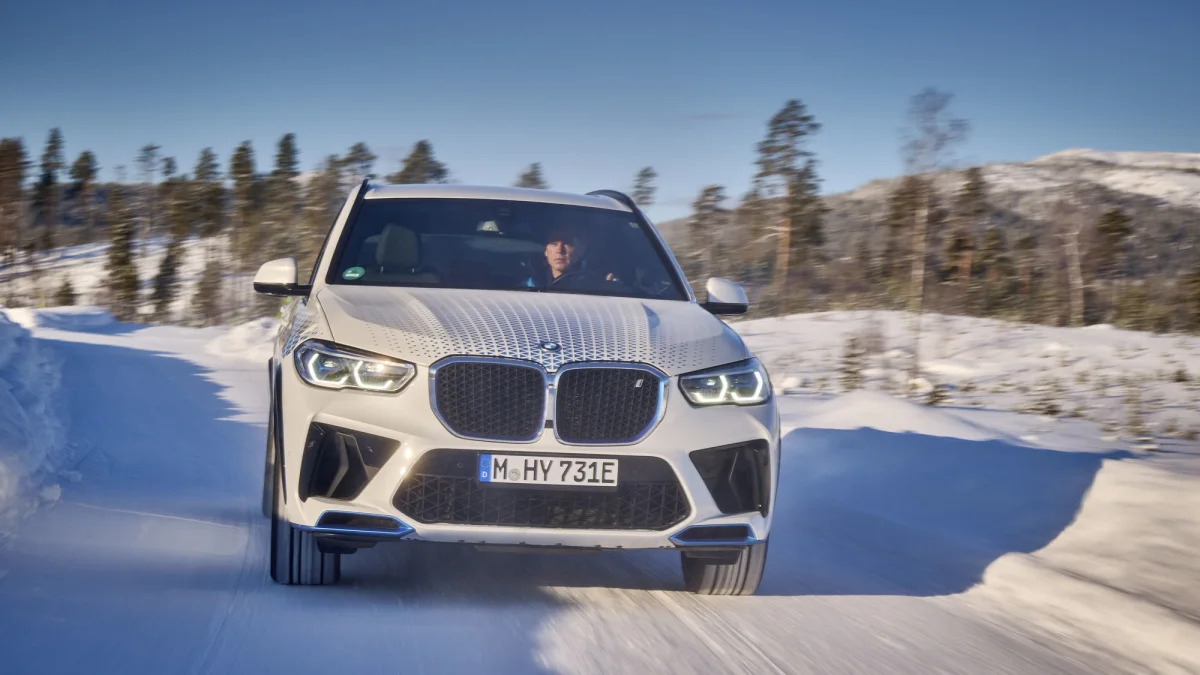BMW, one of the car industry's strongest proponents of hydrogen technology, is putting a close-to-production prototype called iX5 through its paces in a remote, frozen part of Sweden. It plans to begin building the hydrogen-electric SUV in limited numbers before the end of 2022.
Hydrogen isn't a new item on Munich's powertrain menu; BMW built and tested a small number of hydrogen-powered 7 Series sedans from 2005 to 2007. Much has changed over the past 17 years, however. While the big sedans burned hydrogen in an internal combustion engine, the iX5 is fitted with a fuel cell that uses hydrogen stored in a pair of 700-bar carbon fiber tanks to generate electricity that's then sent to a battery pack. The fuel cell develops 170 horsepower, while the same electric motor found in the iX increases the system's total output to 374.
Testing the iX5 near Arjeplog, a town in Sweden that's further north than Fairbanks, Alaska, is a way for engineers to gather data about how the system performs in really cold real-life conditions. So far, the results are positive: BMW notes that, even when the thermometer drops to -4 degrees Fahrenheit, the powertrain delivers its full operating range — which certainly can't be said about electric cars — and full performance.
"[The iX5] offers the locally emission-free mobility of an electric vehicle and the unrestricted every usability — including short refueling stops — familiar from models with an internal combustion engine," said Jürgen Guldner, BMW's vice president of hydrogen fuel cell technology and new vehicle projects. He added that another benefit is that the iX5 weighs less than a comparable battery-powered SUV.
More details about the BMW iX5 will emerge in the coming months, and production is scheduled to start later in 2022. As of writing, it's too early to tell whether the model will be sold in the United States. Regardless, this will be an extremely low-volume version of the X5 but the Munich-based firm expects that demand for hydrogen-powered vehicles will pick up in the coming years. It wants to help expand the network of charging stations in order to position hydrogen-electric cars as a viable alternative to EVs with shorter refueling times and better range.










Sign in to post
Please sign in to leave a comment.
Continue